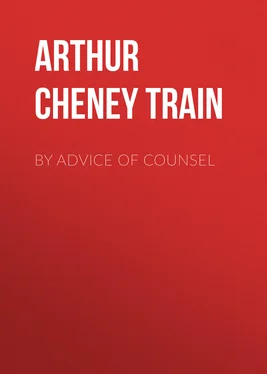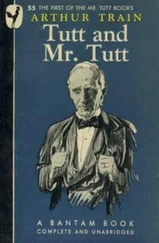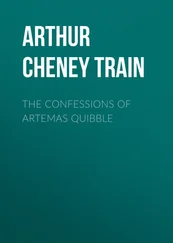Arthur Train - By Advice of Counsel
Здесь есть возможность читать онлайн «Arthur Train - By Advice of Counsel» — ознакомительный отрывок электронной книги совершенно бесплатно, а после прочтения отрывка купить полную версию. В некоторых случаях можно слушать аудио, скачать через торрент в формате fb2 и присутствует краткое содержание. Жанр: foreign_prose, Юриспруденция, foreign_antique, на английском языке. Описание произведения, (предисловие) а так же отзывы посетителей доступны на портале библиотеки ЛибКат.
- Название:By Advice of Counsel
- Автор:
- Жанр:
- Год:неизвестен
- ISBN:нет данных
- Рейтинг книги:4 / 5. Голосов: 1
-
Избранное:Добавить в избранное
- Отзывы:
-
Ваша оценка:
- 80
- 1
- 2
- 3
- 4
- 5
By Advice of Counsel: краткое содержание, описание и аннотация
Предлагаем к чтению аннотацию, описание, краткое содержание или предисловие (зависит от того, что написал сам автор книги «By Advice of Counsel»). Если вы не нашли необходимую информацию о книге — напишите в комментариях, мы постараемся отыскать её.
By Advice of Counsel — читать онлайн ознакомительный отрывок
Ниже представлен текст книги, разбитый по страницам. Система сохранения места последней прочитанной страницы, позволяет с удобством читать онлайн бесплатно книгу «By Advice of Counsel», без необходимости каждый раз заново искать на чём Вы остановились. Поставьте закладку, и сможете в любой момент перейти на страницу, на которой закончили чтение.
Интервал:
Закладка:
"This here," began Murphy, "is a complaint by Sardi Babu"—he swung the cowering little man with a twist before the bench—"against one Kasheed Hassoun for violating the health ordinances."
"No, no! I do not complain! I am not one who complains. It is nothing whatever to me if Kasheed Hassoun keeps a camel! I care not," cried Babu in Arabic.
"What's he talkin' about?" interrupted Burke. "I don't understand that sort of gibberish."
"He makes the complaint that this here Hassoun"—he indicated the tall man in the overcoat—"is violating Section 1093d of the regulations by keeping a camel in his attic."
"Camel!" ejaculated the magistrate. "In his attic!"
Murphy nodded.
"It's there all right, judge!" he remarked. "I've seen it."
"Is that straight?" demanded His Honor. "How'd he get it up there? I didn't suppose—"
Suddenly Sardi Babu threw himself fawning upon Hassoun.
"Oh, Kasheed Hassoun, I swear to thee that I made no complaint. It is a falsification of the gendarme! And there was a boy—a red and yellow boy—who said he had seen thy camel's head above the roofs! I am thy friend!"
He twisted his writhing snakelike fingers together. Hassoun regarded him coldly.
"Thou knowest the fate of informers and provocateurs—of spies—thou infamous Turk!" he answered through his teeth.
"A Turk! A Turk!" shrieked Sardi Babu frantically, beating the breast of his blue blouse. "Thou callest me a Turk! Me, the godson of Sarkis Babu and of Elias Stephan—whose fathers and grandfathers were Christians when thy family were worshipers of Mohammed. Blasphemy! Me, the godson of a bishop!"
"I also am godson of a bishop!" sneered Kasheed. "A properly anointed bishop! Without Tartar blood."
Sardi Babu grew purple.
"Ptha! I would spit upon the beard of such a bishop!" he shrieked, beside himself.
Hassoun slightly raised his eyebrows.
"Spit, then, infamous one—while thou art able!"
"Here, here!" growled Burke in disgust. "Keep 'em still, can't you? Now, what's all this about a camel?"
"That's the very scuttle, sir," asseverated Scraggs to the firm, as Tutt & Tutt, including Miss Wiggin, gazed down curiously out of their office windows at the penthouse upon the Washington Street roof which had been Willie's target of the day before. "I don't say," he continued by way of explanation, "that the camel stuck his head out because Willie hit the roof with the bottle—it was probably just a circumstance—but it looked that way. 'Bing!' went the ink bottle on the scuttle; and then—pop!—out came the camel like a jack-in-the-box."
"What became of the camel?" inquired Miss Wiggin, cherishing a faint hope that—pop!—it might suddenly appear again in the same way.
"The police took it away last night—lowered it out of the window with a block and tackle," answered the scrivener. "A sort of breeches buoy."
"I've heard of camel's-hair shawls but not of camel's-hair breeches!" murmured Tutt. "I suppose if a camel wore pants—well, my imagination refuses to contemplate the spectacle! Where's Willie?"
"He hasn't been in at all this morning!" said Miss Wiggin. "I'll warrant—"
"What?" demanded Mr. Tutt suspiciously.
"—he's somewhere with that camel," she concluded.
Now, Miss Minerva, as her name connoted, was a wise woman; and she had reached an unerring conclusion by two different and devious routes, to wit, intuition and logic, the same being the high road and low road of reason—high or low in either case as you may prefer. Thus logic: Camel—small boy. Intuition: Small boy—camel. But there was here an additional element—a direct personal relationship between this particular small boy and this particular camel, rising out of the incident of the ink bottle. She realized that that camel must have acquired for William a peculiar quality—almost that of a possession—in view of the fact that he had put his mark upon it. She knew that Willie could no more stay away from the environs of that camel than said camel could remain in that attic. Indeed we might go on at some length expounding further this profound law of human nature that where there are camels there will be small boys; that, as it were, under such circumstances Nature abhors an infantile vacuum.
"If I know him, he is!" agreed Mr. Tutt, referring to William's probable proximity to Eset el Gazzar.
"Speaking of camels," said Tutt as he lit a cigarette, "makes me think of brass beds."
"Yes," nodded his partner. "Of course it would, naturally. What on earth do you mean?"
"I mean this," began Tutt, clearing his throat as if he were addressing twelve good and true men—"a camel is obviously an unusual—not to say peculiar—animal to be roosting over there in that attic. It is an exotic—if I may use that term. It is as exotic as a brass bed from Connecticut would be, or is, in Damascus or Lebanon. Now, therefore, a camel will as assuredly give cause for trouble in New York as a brass bed in Bagdad!"
"The right thing often makes trouble if put in the wrong place," pondered Mr. Tutt.
"Or the wrong thing in the right place!" assented Tutt. "Now all these unassimilated foreigners—"
"What have they got to do with brass beds in Lebanon?" challenged Miss Wiggin.
"Why," continued Tutt, "I am credibly informed that the American brass bed—particularly the double bed—owing to its importation into Asia Minor was the direct cause of the Armenian massacres."
"Tosh!" said Miss Wiggin.
"For a fact!" asserted Tutt. "It's this way—an ambassador told me so himself—the Turks, you know, are nuts on beds—and they think a great big brass family bed such as—you know—they're in all the department-store windows. Well, every Turk in every village throughout Asia Minor saves up his money to buy a brass bed—like a nigger buys a cathedral clock. Sign of superiority. You get me? And it becomes his most cherished household possession. If he meets a friend on the street he says to him naturally and easily, without too much conscious egotism, just as an American might say, 'By the way, have you seen my new limousine?'—he says to the other Turk, 'Oh, I say, old chap, do you happen to have noticed my new brass bed from Connecticut? They just put it off the steamer last week at Aleppo. Fatima's taking a nap in it now, but when she wakes up—'"
"What nonsense!" sniffed Miss Wiggin.
"It's not nonsense!" protested the junior partner. "Now listen to what happens. Some Armenian—the Armenians are the pawnbrokers of Asia Minor—moves into that village and in three months he has a mortgage on everything in it, including that brass bed. Then the Turkish Government, which regards him as an undesirable citizen, tells him to move along; and Mister Armenian piles all the stuff the inhabitants have mortgaged to him into an oxcart and starts on his way, escorted by the Sultan's troops. On top of the load is Yusuf Bulbul Ameer's brass bed. Yusuf looks out of his doorway and sees the bed moving off and rushes after it to protect his property.
"'Look here!' he shouts. 'Where are you going with my brass bed?'
"'It isn't yours!' retorts Mister Pawnbroker. 'It's mine. I loaned you eighty-seven piasters on it!'
"'But I've got an equity in it! You can't take it away!'
"'Of course I can!' replies the Armenian. 'Where I goeth it will go. The Turkish Government is responsible.'
"'Not much,' says Yusuf, grabbing hold of it, trying to pull it off the cart.
"'Hands off there!' yells the Armenian.
"Then there is a mix-up and everybody piles in—and there is a massacre!"
"That's a grand yarn!" remarked Mr. Tutt. "Still, it may be—"
"Bunk!" declared Miss Wiggin. "And what has that got to do with camels?"
"My point is," affirmed Tutt, waving his index finger—"my point is that just as a Yankee brass bed in Turkey will make certain trouble, so a Turkish camel in New York is bound to do the same thing."
Читать дальшеИнтервал:
Закладка:
Похожие книги на «By Advice of Counsel»
Представляем Вашему вниманию похожие книги на «By Advice of Counsel» списком для выбора. Мы отобрали схожую по названию и смыслу литературу в надежде предоставить читателям больше вариантов отыскать новые, интересные, ещё непрочитанные произведения.
Обсуждение, отзывы о книге «By Advice of Counsel» и просто собственные мнения читателей. Оставьте ваши комментарии, напишите, что Вы думаете о произведении, его смысле или главных героях. Укажите что конкретно понравилось, а что нет, и почему Вы так считаете.












